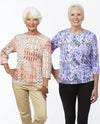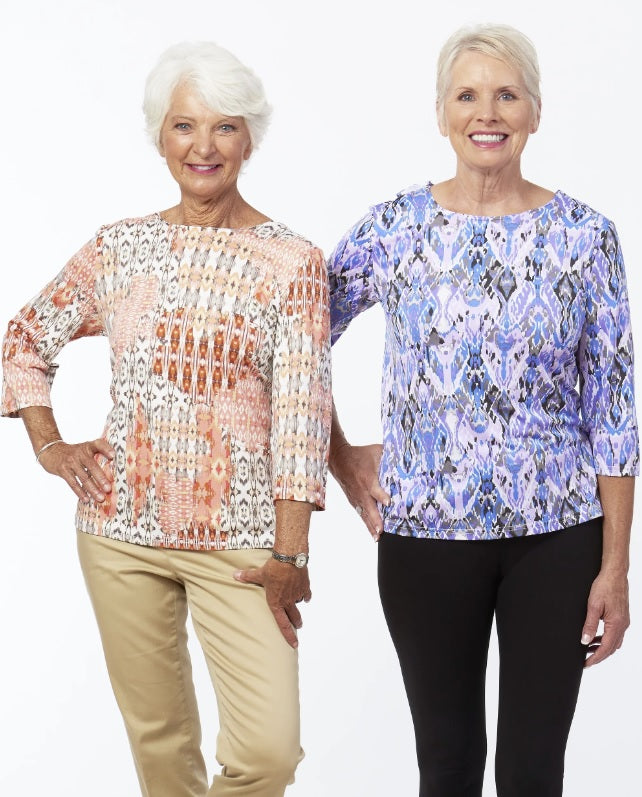
Adaptive clothing can be used for Alzheimer's patients and can provide significant benefits for both the individuals with Alzheimer's and their caregivers. Alzheimer's disease is a progressive neurological condition that affects memory, cognitive function, and behavior. As the disease progresses, individuals may experience difficulties with daily activities, including dressing.
Adaptive clothing specifically designed for Alzheimer's patients takes into account the unique challenges they face. Here are some ways in which adaptive clothing can be beneficial for individuals with Alzheimer's:
- Simplified Dressing Process: Adaptive clothing for Alzheimer's patients often incorporates features that simplify the dressing process. This can include garments with easy-to-use closures such as Velcro, magnetic buttons, or snap fasteners. These modifications minimize the need for complex maneuvers, allowing individuals with Alzheimer's to dress more easily and independently.
- Reduced Frustration and Agitation: Alzheimer's patients may become frustrated or agitated when faced with complex clothing items or multiple fastenings. Adaptive clothing eliminates these challenges by providing simplified designs that are easier to manage. This can help reduce frustration and promote a more positive dressing experience for individuals with Alzheimer's.
- Maintaining Continuity: Alzheimer's disease can disrupt a person's ability to recognize and select appropriate clothing. Adaptive clothing for Alzheimer's patients often features familiar styles, colors, or patterns that the individual has been accustomed to. This helps maintain continuity and familiarity, reducing confusion and anxiety associated with clothing choices.
- Promoting Independence: Adaptive clothing empowers individuals with Alzheimer's to maintain a sense of independence in their dressing routine. With the simplified design and easy-to-use closures, individuals can dress themselves to the best of their abilities, promoting self-esteem and preserving their autonomy.
- Enhancing Safety: Safety is a crucial consideration for individuals with Alzheimer's. Adaptive clothing can incorporate features such as anti-strip designs or hidden fastenings to prevent individuals from removing or tampering with their clothing, particularly in situations where disrobing may be a concern. This helps maintain the individual's dignity while ensuring their well-being.
- Easier Caregiver Assistance: Adaptive clothing also benefits caregivers by simplifying the process of dressing their loved ones with Alzheimer's. The garments' modified features make it easier for caregivers to dress and undress individuals, reducing the time and physical effort required. This can alleviate stress on caregivers and contribute to a more efficient caregiving routine.
It's important to note that while adaptive clothing can be beneficial for Alzheimer's patients, individual preferences and needs may vary. It's essential to consider the unique circumstances and consult with healthcare professionals or occupational therapists to determine the most suitable adaptive clothing options for each individual with Alzheimer's.
Overall, adaptive clothing for Alzheimer's patients offers practical solutions to the challenges associated with dressing, promoting independence, comfort, and safety. It can contribute to a more positive and dignified experience for individuals with Alzheimer's and support caregivers in providing the best possible care.
